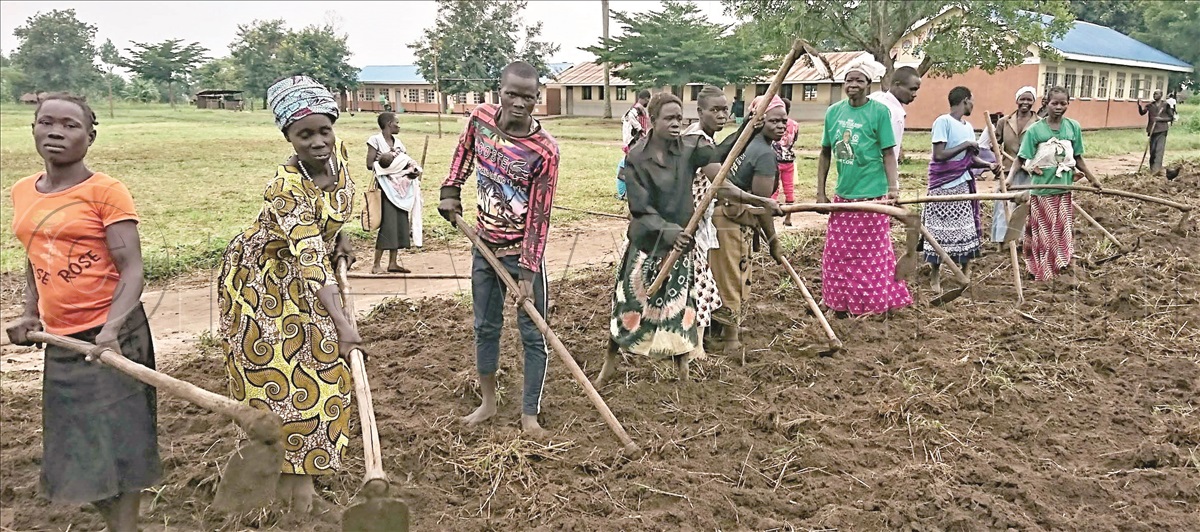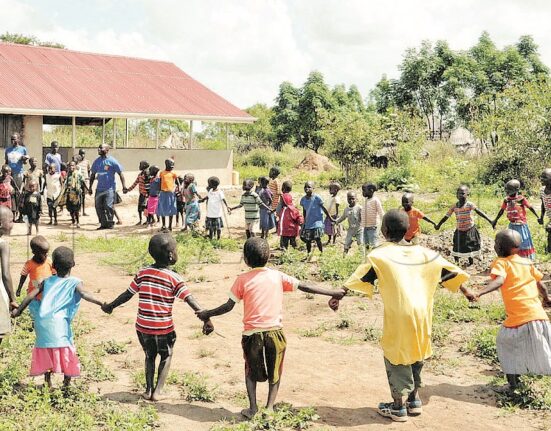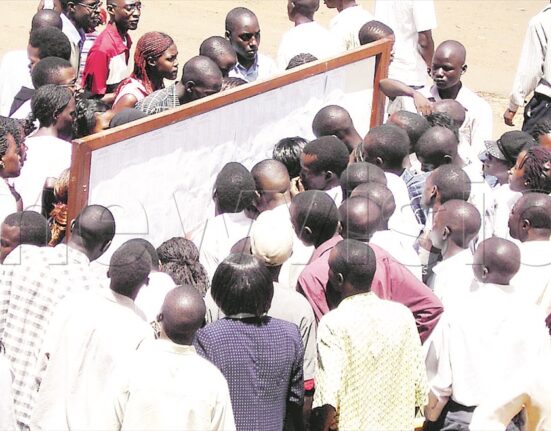(This article was first published in the New Vision on July 13, 2022)
By Andrew Masinde and Arnest Tumwesige
For several years, a humanitarian organisation provided lunch to pupils at Namalu Mixed Primary School in Nakapiripirit district. However, when schools reopened early this year, two years after they had been closed to control the spread of COVID-19, there was no lunch for the pupils.
The school authorities were puzzled as they learnt that the humanitarian agency had closed the project, yet they had 840 pupils to feed. But one teacher, Innocent Masanja, sought a solution to this challenge.
In February, Masanja approached Andre Foods International (AFI), an non-government organistion funded by the UN’s World Food Programme, with a request to provide the school with planting materials so that they can grow their own food.
“They accepted to give us potato vines to plant. Since the school has 30 acres, I requested that they also support us with tilling the land and assured them that the pupils would do the planting,” he said. With support from AFI, the school opened seven acres, and when the rains returned in May, the school authorities mobilised the pupils and parents to plant potato vines.

Hope
The school’s deputy headteacher, Geoffrey Arims, is hopeful that the potato growing initiative will help keep the pupils in school.
He said some children dropped out because the school, which has a population of 1,242 pupils, could not provide lunch.
“When we start harvesting potatoes, we believe the school will be flooded with pupils and cases of absenteeism and dropouts will reduce,” Arims said.
He added that the school will provide potato vines to the children and their parents so that the families can grow potatoes as well.
Karamoja Poor
Karamoja is one of the poorest regions in the country, according to the 2016 Uganda National Household Survey.
The area suffers from long periods of drought, which affect crop production in the region, which includes Abim, Amudat, Kaabong, Karenga, Kotido, Moroto, Nabilatuk, Nakapiripirit and Napak districts.
As a result, currently, 2.4% of children in Karamoja are severely malnourished and 10.7% are moderately malnourished, according to the Integrated Food Security Phase Classification (IPC) analysis — a set of tools and procedures used to classify the severity of food insecurity.
Fatuma Naigino, a field monitoring officer at AFI in Moroto district, said several families in Karamoja are facing acute food insecurity levels. She blamed the situation on, among others, limited livelihood options and poverty.
Parents, Pupils Speak Out
Florence Lokoru, whose children attend Namalu Mixed Primary School, said she is unable to contribute money towards the school’s feeding programme, adding that the potato project is timely.
Jonathan Kodet, a pupil at the school, said his parents cannot afford to pack for him food to eat at school.
“We do not even have enough food to eat at home. I will have food at school and pick potato vines for our family to plant,” he added.
The Nakapiripirit district inspector of schools, William Abura, said he will support all efforts to roll out the initiative to all the schools in the area.
“This is a great opportunity, so I advise the community to take part so that they also start producing food at home. Karamoja is not a desert. People have just not utilized their land,” Abura stated.

Parents To Grow Food
In Gulu district, authorities at Omoti Primary School, located in Patiko sub-county, have mobilised parents to grow food on the school’s land as they can no longer provide food to the school to make lunch for their children. The school’s pupil population is over 700 people.
The headteacher, George Ojara, said parents can facilitate the school feeding programme in the face of the rising commodity prices, which has encouraged the school to mobilise them to grow food on its land.
He added that the school bought 50kg of posho at sh164,000 three weeks ago, but this was consumed in two days, which shows how buying food to feed the school is increasingly becoming unsustainable.
So far, according to Ojara, parents in the area have planted four acres of maize, three acres of beans and two acres of sunflower.
At Rwotobilo Primary School in Owor sub-county, also in Gulu district, the headteacher, Bosco Okumu, said he has already mobilised parents to grow food on the school’s land to support the children’s feeding scheme.
The school’s population is 765. Out of these, only 20 pupils with disabilities, who are funded by Save the Children under the Together for Inclusive project, are served meals, according to Okumu.
The Gulu district education officer, Caesar Akena, said other primary schools, such as Cwero, Paicho, Panykworo, Oguru and Awach, are also implementing similar initiatives. He asked other schools to emulate the example set by these institutions.









Leave feedback about this